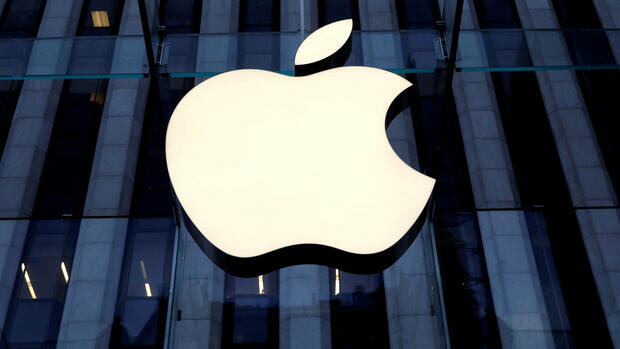New York Apple’s business is proving resilient to economic worries and logistics bottlenecks. Last year, the Cupertino-based company was able to increase sales of the iPhone in an overall shrinking smartphone market. Together with higher revenues from the services business, this more than compensates for the decline in sales of other devices.
Overall, Apple’s third-quarter revenue rose two percent to about $83 billion. Profit fell by more than ten percent to $ 19.4 billion, as Apple announced after the US stock market closed on Thursday.
“This quarter’s record results speak to Apple’s ongoing commitment to innovate and enrich our customers’ lives,” said Tim Cook, Apple’s CEO. In particular, he highlighted “new functions to protect the privacy and security of users, as well as tools that improve accessibility”. The business was managed effectively despite the difficult market environment, added CFO Luca Maestri. The number of active devices is at an all-time high.
The results were positively received on the stock exchange. Analysts had expected worse figures. The share temporarily rose by around three percent in after-hours trading.
Among analysts, the reaction was less clear-cut. Sophie Lund-Yates, equity analyst at financial house Hargreaves Lansdown, praised the “remarkable resilience of the group”. However, she saw the decline in product sales across all categories as a warning sign, “as the hardware is still the engine of the business.” It is encouraging to see that Apple is earning more and more with services. “But the service network cannot ensnare customers if iPhones, Macs and smartwatches are not sold.“
It is therefore crucial how the new iPhone models will arrive later in the year. “With the U.S. in a technical recession and consumer confidence at a low, expectations may be overblown,” Lund-Yates said. Success in the coming months is not guaranteed, especially given the tech giant’s commitment to China. China is not only a production location, but also an important sales market. And the economic outlook in Asia also deteriorated.
Questions arise about Apple’s foray into the lending business when buying new devices. This is a thorn in the side of the US regulators. One could argue, the analyst said, “that this is not the right time to encourage people to go into debt.“
Growing dependence on the iPhone
The new figures show the importance of iPhone sales for Apple. This was again the driver of the development. Smartphone sales grew from $ 39.6 billion in the same period last year to just under $ 40.7 billion. According to calculations by the analysis company Canalys, Apple was able to expand its share of the overall shrinking smartphone market by nine percent last quarter thanks to good sales of the iPhone 13.
In the services business, which includes, for example, subscription revenues from Apple’s music and video streaming services as well as the fees of the software providers in Apple’s App Store, there was an even more significant increase from 17.5 to 19.6 billion dollars. Apple, on the other hand, recorded declines in Mac computers and iPad tablets. As a result, the Group’s dependence on its flagship smartphone continues to increase.
Breathing a sigh of relief in the tech market
Wedbush analyst Dan Ives saw a breath of relief in the tech market. “Apple just delivered a robust June quarter that will be at the center of the tech universe.” Cupertino’s ability to cope with supply chain bottlenecks despite the Covid shutdowns in China is impressive.
Consumer demand is also solid, even in China. We can expect good sales for the upcoming iPhone 14. “We expect Apple to be able to weather this economic storm with an intact demand and growth story for iPhones and services at the forefront.“
In recent days, Wall Street has been worried about a further decline in tech values. Just last week, Snap and Twitter had presented alarming figures. On Tuesday evening, solid results at Microsoft and the counter-trend growing advertising business at Google had provided cautious relief in the tech market.









